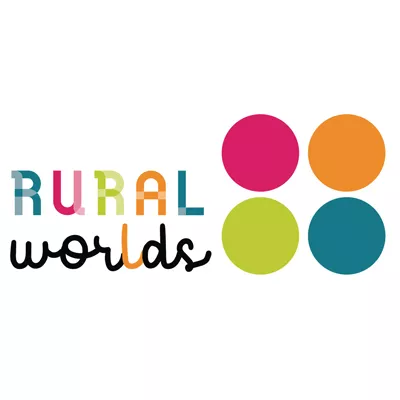General information
RDP Measure
- M20: Technical assistance
Summary
The Rural Worlds project promoted sustainable agricultural practices by networking public authorities, universities, SMEs and NGOs, with young people (university students, farmers and entrepreneurs) via virtual and physical events. Outcomes created a shared understanding of the needs of the agricultural sector as a basis for exploring ways in which young people can bring innovation into farming and rural life to boost adoption of sustainable agricultural practices.
Results
- The Rural Worlds E-learning programme supported 800 students and 80 young farmers.
- The Talks-at-Sunset series supported 300 participants and gathered 200 social media followers.
- The Rural Worlds Hackaton attracted 102 participants online & offline.
The project created a collaborative network of researchers, communication specialists, teachers, farmers, professionals, and creative talent. Out of this, 13 partnership agreements with RDP managing authorities and 24 with the university sector have been established.

Promoter
CREA PB / Italian NRN
Funding
Total budget - 140 000 (EUR)
EAFRD - 72 828 (EUR)
National/regional - 67 172 (EUR)
Ressources
Documents
Rural Worlds (RWs) - Words like Seeds
(PDF – 2.12 Mo)
Context
Consumers are becoming more conscious about their health, the quality of the food they eat, and the environment in which their food is produced. More information can be useful to encourage more demand and support for sustainable agriculture practices which reflect these consumer interests. Young farmers and agricultural students can take advantage of science and communication expertise to collaborate on the development of new ideas and solutions which raise more awareness about opportunities from sustainable agriculture. In this context, the Italian National Rural Network used technical assistance funds to bring these actors together through the Rural Worlds (RWs) project.
Objectives
The RWs initiative sought to increase sustainable agricultural practices by developing effective cooperation and knowledge exchange.
Activities
Using a hands-on learning approach, the project supported best practice exchanges and collective development of knowledge concerning ways in which young people can bring innovation into farming and rural life to enhance possibilities for sustainable agriculture.
- RWs E-learning - involving a kick-off event and a comprehensive series of online courses concerning the Common Agricultural Policy (in particular Rural Development Policy), sustainable agriculture, and innovation in rural areas.
- RWs Talks-at-Sunset - a virtual professional development programme about emerging sustainable agriculture practices delivered by social entrepreneurs, international agricultural fair representatives, and high profile speakers with managerial experience.
- RWs Hackaton Camp - an event involving agricultural entrepreneurs, regional authority representatives, communication experts, university lecturers and students from across Italy. A mix of online and on-site activities (study visits, workshop-labs, etc.) the six-day camp (two days online and four offline) promoted the development of soft skills and collective problem solving. Participants elaborated SWOT analyses, business models, and communication plans in response to real issues that are at the forefront of farming and rural development in terms of societal change and the climate crisis.
- RWs Knowledge dissemination - a suite of talks, demonstrations and focus groups created to gather a detailed overview of the sustainable agriculture challenges faced by farmers and the needs and interest of agriculture students.
A survey questionnaire was distributed at the end of each phase of the programme (E-learning, Talks-at-Sunset, …), and the Mentimeter app was used during the interactive events with farmers to acquire socio-demographic data relating to their needs and difficulties.
Main results
In 2022, RWs E-learning supported 800 students and 80 young farmers. The Talks-at-Sunset series supported 300 participants (250 students, 13 young farmers, 13 regional communications actors, 24 university teachers, as well as several Rural Hub professionals and NRN researchers). The series also attracted 200 social media followers. The RWs Hackaton involved - online & offline - 102 participants (48 students, 10 young farmers, eight regional authority representatives, 24 university teachers, six Rural Hub professionals and six NRN researchers and technicians). The RWs knowledge dissemination phase will confirm results at the end of 2022.
Evaluation questionnaire findings indicated positive feedback overall.
The RWs project has led to the creation of a collaborative network of researchers, communication specialists, teachers, farmers, professionals, and creative talent. Out of this, 13 partnership agreements with CAP managing authorities and 24 with a university have been established.
Key lessons
Sustainable agriculture can supply consumers with health and environmental benefits that support the long-term future of rural economies.
Pro-active measures to improve understanding among young and future farmers about sustainable agricultural opportunities can be optimised by integrating economic, social and environmental knowhow.
